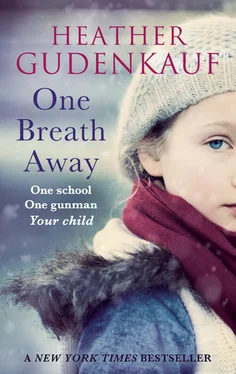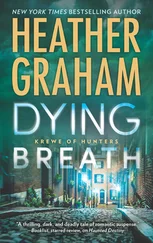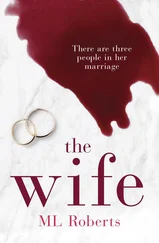Over the years she had caught students cheating, fighting, smoking, stealing and many other offenses, but no one hated her. She prided herself in being fair-minded and compassionate; she learned there was so much more to a student than his or her grades. They were human beings, young and certainly not fully formed yet, but that was where she came in. She learned after that horrible second year with Walter that she had the power, no, the supremacy , to make a child learn, to want to learn. And in her forty-three years of being a teacher, there was only one other student, besides Walter, for whom she felt she failed to make a positive difference. Mrs. Oliver squinted, trying to see past the hat and gloves the man was wearing, the years that had passed. It could be him, she thought. There is that possibility.
Kenny Bingley. He had been a weedy-looking child, tall with long legs and proportionally short arms. Like a sprig of big stem or turkey foot, as her mother had called the long, bland prairie grass that was abundant throughout their part of the state. It could certainly be Kenny Bingley. Right age—fortyish, brown hair, mean eyes. Kenny Bingley was perhaps the student whom she lost the most sleep over. He came to school tardy every day, if at all. A perpetual musty, wet smell clung to his pale skin as if his clothing was tossed into a corner and forgotten about until he needed to put them on. No matter the child, no matter where they came from, no matter their circumstances, Mrs. Oliver was always able to find a spark of wonder and curiosity in her students’ eyes. But in eight-year-old Kenny, above the blue smudges that shadowed his eyes, there was no flicker, no interest or amazement for the world. There was nothing. Just an eerie calm. He wasn’t disruptive in the classroom per se, but trouble seemed to follow him wherever he went. Recess football games ended in bloody noses, lunch money went missing, classroom pets died under suspicious circumstances. But there was nothing that she could actually pin specifically on Kenny. She suspected abuse at the hands of his mother; there were no bruises, no proof, just that air of detachment, his indifferent countenance.
Two things happened the week Kenny was expelled. A horned lark was found on the school steps with both its legs snapped. Once again, Mrs. Oliver had absolutely no tangible proof that Kenny was the one who had mortally wounded the beautiful bird. But she had been the one to find it there on the school steps, its twig legs unnaturally splayed; she was the only one there to hear the ragged, high-pitched chirps, or so she thought.
The second incident that occurred had to do with a pair of scissors and a very pretty third grader named Cornelia Patts. She had stepped into the hall for just a moment, wasn’t even actually all the way out of the room. The principal, Mr. Graczyk, had a question for her about some such thing or another, and had called her to the doorway. The next thing she knew, poor Cornelia was screaming and clutching at her bleeding hand. “He stabbed me,” she cried in disbelief. Mr. Graczyk ran into the classroom and yanked Kenny up out of his seat, the bloody scissors sitting on his desk in front of him. While Mrs. Oliver wrapped the wound in a clean handkerchief, the classroom was silent except for Cornelia’s soft sobs.
As Kenny was led from the classroom by Mr. Graczyk he pressed his thin, pale lips together, his shoulders slumped like a bent reed, and whistled a high, distorted tune, so much like that of the lark she found languishing on the school’s steps.
The man with the gun before her now could very possibly be Kenny Bingley. He had never returned to school after that day, was immediately expelled, and Mrs. Oliver never learned what became of him, though she often asked after him. She decided to test her theory and began whistling the dying lark’s song. Warbling and faint at first, then louder. The man, who had been sitting on the tall stool at the front of the room, the gun on his lap, looked back at her with his cold, flat eyes. “Kenny Bingley,” she said stringently. “You need to stop this nonsense right this minute.”
There are shrieks from the crowd as a chair comes crashing through a window. I, along with the other officers present, unholster our firearms and we watch in amazement as a pink-clad shape tumbles out of the window. Immediately I know this is no gunman. It’s Gail Lowell, the elderly secretary at the school. She is coatless, wearing a bright pink sweater and chunky metallic jewelry. Her necklace and bracelets jingle gleefully as she picks her way carefully through the snow, her purse dangling from her arm. As she comes toward us, voices from the crowd pellet her. What’s going on? Are the kids okay? Is there a man with a gun?
“How many intruders are there?” I ask in a low voice as she approaches. She appears to have been crying, but it’s hard to tell because of the snow. “Did you see someone with a gun? Any injuries?” Gail looks helplessly from me to Chief McKinney and then her face crumples.
“It’s all my fault,” she sobs.
“Gail, this is important. Tell us exactly what’s going on in there,” I say more sharply than I intend to.
“Now, now, Gail,” McKinney tries to soothe her. “Are you injured?” Next to them I shuffle my feet and make soft, impatient sounds until McKinney glares at me.
Gail snuffles loudly. “No, no. I’m not hurt.”
“Let’s get you warmed up and then you can tell us what’s going on.” He leads her to a squad car with an idling engine, opens the door and gently guides her into the passenger’s seat. The chief climbs into the driver’s side and I settle into the backseat. For a moment the only sound is Gail’s soft cries and shivers. Chief McKinney fiddles with the heat and a whoosh of warm air floods the car.
“Gail,” I say through the partition that separates the front and back seats, “I know how difficult this must be for you. How terrified you must be.” I look at the chief and he nods for me to continue. “We need to know just three things right now, then we can take you wherever you want to go. Okay?” She bobs her head up and down and presses her fingers to her eyelids. “First, is anyone injured inside?”
Her chin wobbles. “I don’t know,” she says in a small voice. “I don’t know. He went off down the hallway and then he was gone.”
“One intruder, Gail? Did you know him? Is that what you are saying? There was just one person? Young or old?” I ask, thinking of Dorothy Jones’s son, Blake.
Gail closes her eyes and shakes her head as if trying to conjure up an image. “I didn’t recognize him. It was a man, just one. Forties maybe,” she says in a whisper.
Chief McKinney and I look at each other in relief. At least we can assure Dorothy that her son isn’t the intruder and encourage her to get him the help he needs and fast.
“I saw him come in,” Gail cries. “Oh, God, he walked right by the office window. He had on a tool belt. I thought he was going to work on the boiler—the thing is always breaking down and it’s so cold today. I didn’t even give it a second thought. He just walked right on by. Gave me a little wave.” A fresh round of sobs erupts and the chief pats her on the knee. “I should have noticed that he wasn’t dressed like a maintenance man. He was wearing dress shoes. Not work boots.” She pulls her hands from her eyes and her fingers are smudged with mascara. “Can I call my husband? Please?”
Конец ознакомительного фрагмента.
Текст предоставлен ООО «ЛитРес».
Прочитайте эту книгу целиком, купив полную легальную версию на ЛитРес.
Читать дальше












